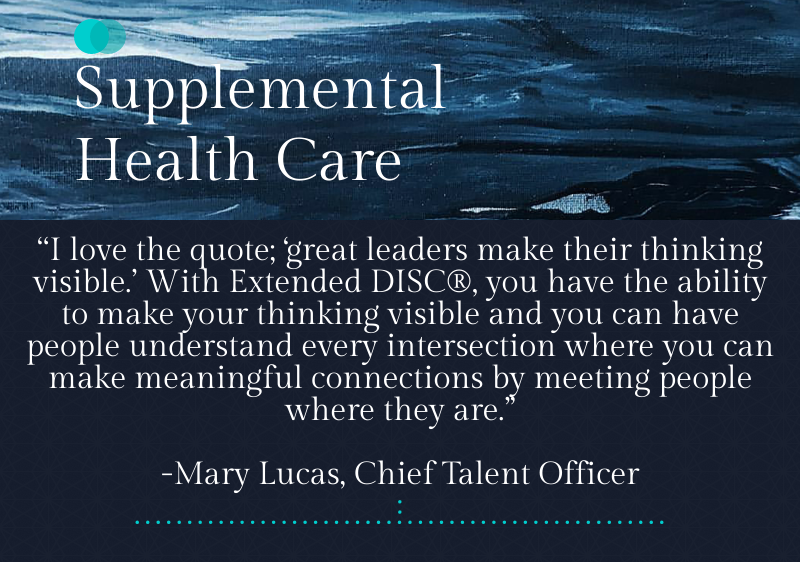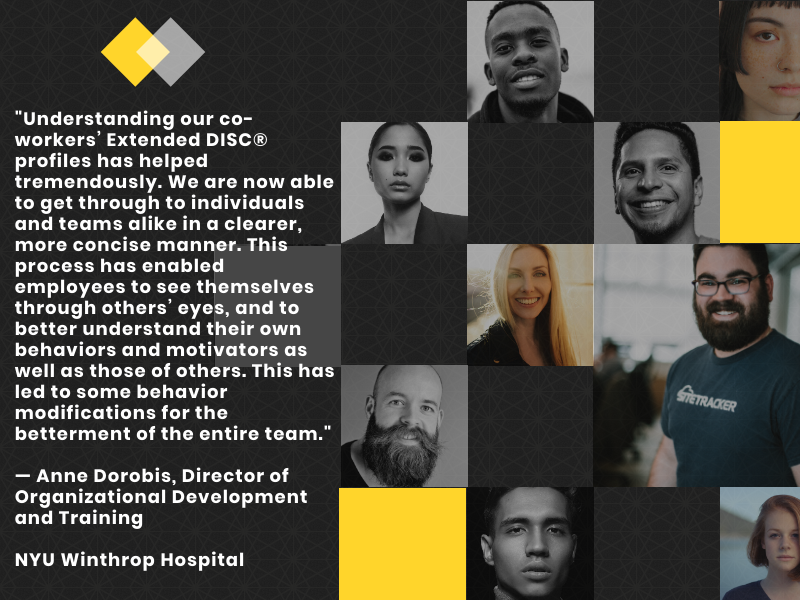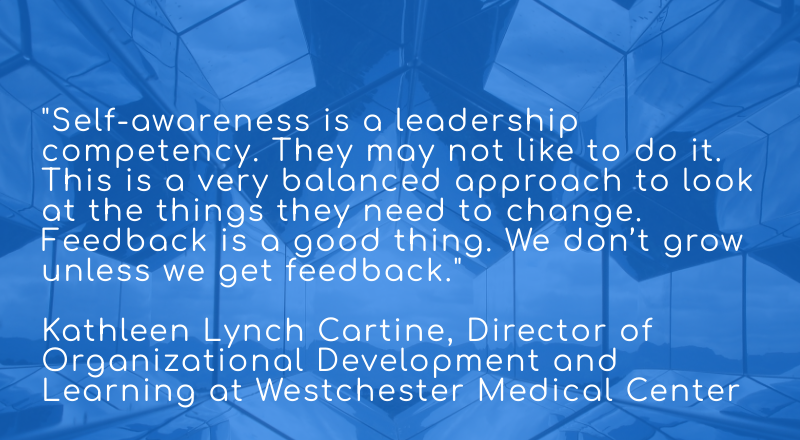Effective outcomes depend on how well we interact with our colleagues and our patients. DISC helps improve these interactions and ultimately, the outcomes.

The healthcare sector is comprised of a complex series of interactions. Critical communication is regularly exchanged between providers, staff, and patients. The cost of miscommunication is extremely high, whether it is about the bottom line, about patient outcomes or even more critically, life or death. The Joint Commission estimates 50 – 80% of serious unplanned medical events are the result of communication failures.
Most of the times, the patient interacts with an entire healthcare team, including medical staff, nurses, and physicians. Coordination of care is critical to delivering the best care to the patient. So, how can DISC help us to improve our interactions to improve our team’s productivity and improve our patient outcomes?
DISC overview
 We are not all naturally large-and-in-charge, empathetic, and good listeners. However, it doesn’t mean we can’t be successful as a decisive, caring or attentive medical professional or individual in life. We all have strengths and we all have areas of development; they are simply different. The key to success is utilizing our behavioral strengths and making adjustments to our style to ensure the best outcomes. DISC helps us to accomplish it.
We are not all naturally large-and-in-charge, empathetic, and good listeners. However, it doesn’t mean we can’t be successful as a decisive, caring or attentive medical professional or individual in life. We all have strengths and we all have areas of development; they are simply different. The key to success is utilizing our behavioral strengths and making adjustments to our style to ensure the best outcomes. DISC helps us to accomplish it.
DISC doesn’t judge a person as better or worse; it’s designed to help us better understand how we prefer to do things; which behaviors tend to be more comfortable to us and which behaviors tend to take more energy for us. DISC doesn’t identify our skills, attitude, or knowledge; nor does it predict our success in any role or career. It simply provides a road map so we can better understand our natural preferences.
How Extended DISC helps us be more successful as healthcare providers
 Providers and patients cannot afford to have their messages conveyed ineffectively; resulting in misunderstandings or worse. Can you imagine prescribing a course of treatment to your patient and then having them ignore, misunderstand you, or follow it incorrectly?
Providers and patients cannot afford to have their messages conveyed ineffectively; resulting in misunderstandings or worse. Can you imagine prescribing a course of treatment to your patient and then having them ignore, misunderstand you, or follow it incorrectly?
It is infinitely critical for healthcare professionals to be able to communicate clearly and effectively. In health care, not to be overly dramatic, it can mean the difference between life and death. Effective communication, using DISC, enables us to treat diverse patients the way they prefer to be treated and thus, more likely to respond to treatment plans. This can be a critical factor to treating patients, especially those needing to be prescribed post-visit regimen and self-care.
As a healthcare provider, how do we build patient trust, deliver diagnoses, and create healthier outcomes? DISC helps us to understand our natural communication styles, as well as that of our patients. It helps build awareness of how you tend to come across to others, and helps you to identify the style of your patients.
Different patients’ styles

D-style patients tend to be more comfortable when you focus on key points. They want to feel a sense of control so try providing options and opportunities to make decisions. You don’t need to spend a lot of time chit chatting with your D-style patient.
I-style patients tend to be more comfortable when they have time to chit chat. They want to feel a personal connection and focus more on the positive.
S-style patients tend to feel more comfortable if you take time to build rapport and answer their questions patiently. It is important to them that they feel you are sincere.
C-style patients tend to feel more comfortable if you slow down, provide proven solutions, and provide detailed answers to their questions.
Considering these often brief and temporary adjustments to our style can make the difference between our interactions and help make them more successful. Extended DISC user, Mary Lucas, Supplemental Health Care notes about the assessment, ‘…you have the ability to make your thinking visible and you can have people understand every intersection where you can make meaningful connections…’ Ultimately, as healthcare providers, we need to make meaningful connections.
How Extended DISC builds better healthcare teams

As healthcare workers we rarely work alone. We are almost always working in a team where communication is critical to health outcomes. Healthcare teams are required to pass off information between staff, providers, nurses, etc. It may be face-to-face, on the phone, or in writing. Some of these interactions result in frustration, confusion, a sense the other person didn’t grasp what you were saying, or worse, a mistake.
DISC can help us to understand that we have preferred and different styles of communicating with colleagues, just as with our patients. It can help us to identify and predict how we tend to do things; how we work under pressure, how we make decisions, how we prefer to communicate, etc.
It can also show us what happens when we do not adjust our behaviors. We have a tendency to rely on our behavioral strengths because it doesn’t take additional energy and focus. However, it is often the overuse of our strengths that gets us into trouble. We definitely should be using our strengths, our jobs are hard enough; however, we need to be aware when are natural style works and when we should adjust.
Just like the childhood game, telephone, small differences in our communication style can impact the messages we receive. Effective communication is what ties successful healthcare team members together, from medics, to assistants, to nurses, to doctors, etc., to provide more seamless and effective care.
Extended DISC Resources

The Extended DISC® tool measures an individual’s and team’s hard-wired DISC style – NOT what they think or want to be – creating the most accurate starting point for development. Extended DISC has targeted reports, including the Extended DISC® Health Care Professional Assessment, the Extended DISC® Leadership Assessment, The Extended DISC® Team Assessment, and more.
In addition, we provide documented case studies enabling everyone to benefit from shared successes. Better communication and interactions strengthen the team and the provider-patient bond. It helps keep us motivated, productive, and successful. In the end, it’s about helping our clients, team members, and patients to have better outcomes. Extended DISC helps us deliver high quality healthcare, but ultimately, it is to help us focus on the human factor.
{{cta(‘8727d043-bfe3-4544-97e1-f14af1b867b4’)}} to learn more!
